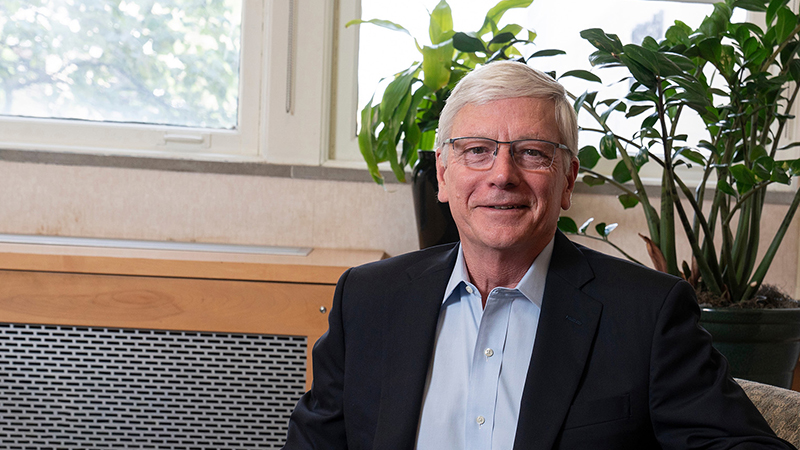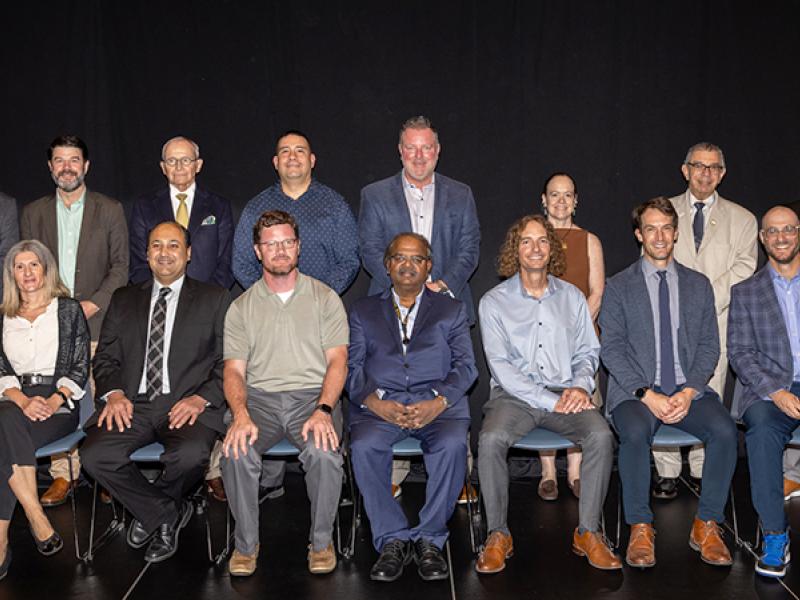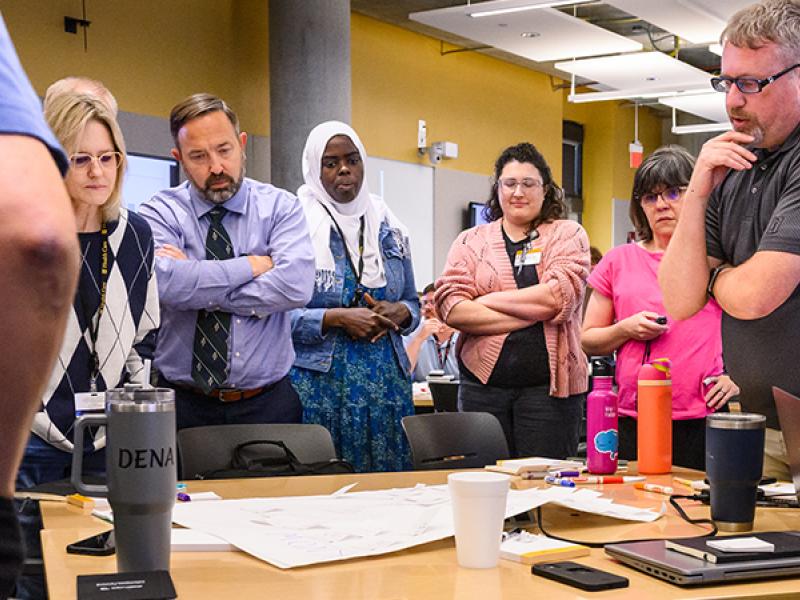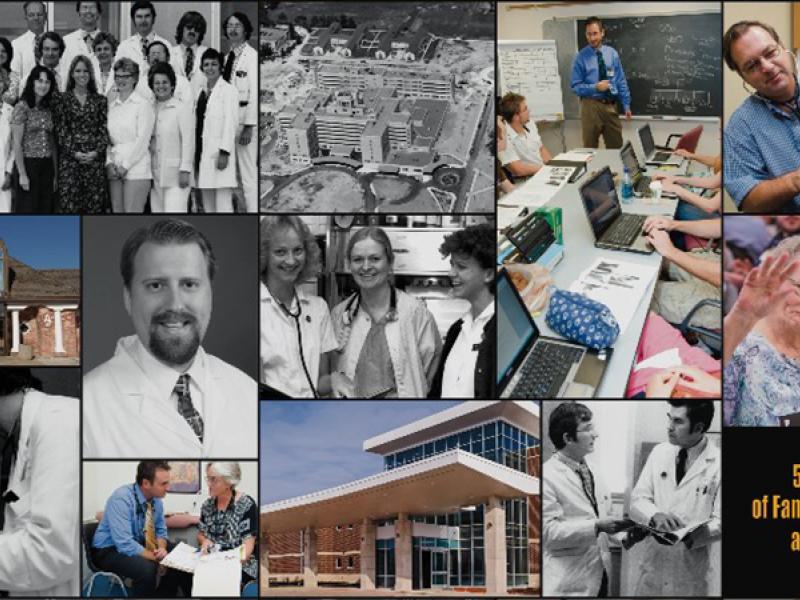
Michael LeFevre, MD, hadn’t meant to stay in Columbia for over 50 years. It just happened. Heck, the first time he had come to Missouri, he was adamant about returning to Illinois.
“I actually grew up in Gibson City, Illinois. It’s an east-central Illinois town of about 3,500 people,” LeFevre said. “My father was transferred to Missouri when I was in high school, so I graduated in Higginsville, Missouri. I was pretty determined that I was gonna go back to the University of Illinois.”
But like many college students, LeFevre stayed in Missouri and studied here in Columbia, since tuition at Illinois was much more expensive and he couldn’t see any meaningful difference in education. He chose to study electrical engineering at first, but halfway through, LeFevre realized – it wasn’t what he wanted to do.
“I needed something that was much more people oriented. It’s not that engineers don’t help people, it’s just much more indirect,” LeFevre said. “Medicine was much more direct. You’re literally working with people on a day-by-day basis, people in times of need.”
LeFevre still graduated with an engineering degree, but he had taken the requisite classes to qualify for medical school and was accepted at MU’s School of Medicine. LeFevre remained in Columbia for residency, as he decided to pursue family medicine and didn’t find a better program elsewhere. The same was true for his fellowship. When he started looking for a place to practice medicine, he thought, what’s better than home?
“Here I was, with great people in a great place and a nice place to live, a good department,” LeFevre said. “Why would I go someplace else when I have the best of those worlds right here?”
LeFevre joined the MU School of Medicine faculty in 1984 and worked for the next 40 years as a family medicine doctor. Before becoming the chair of Family and Community Medicine in 2019, he oversaw seven medical practices as the director of clinical services in the same department. Throughout all this time, he continued to see patients.
“I literally have patients that I started taking care of when I was a resident, and I'm still taking care of them,” LeFevre said. “I have a lot of people that I've been taking care of for 20 to 30 years, and I have people that I still take care of, that I delivered. Each one of them is a story. You know, that's what family medicine is about. It's about those stories.”
He does have one regret, though.
“I haven’t delivered any babies in Walmart. I’ve always thought that would be kind of fun,” LeFevre said. “You know, ‘Boil some water, grab some towels – we’re having a baby in aisle nine!’”
A regional and national leader
LeFevre personally saw the medical school and MU Health Care through several transitions and changes. For example, he co-chaired the committee that produced the evidence-based, patient-focused curriculum in use today. He also oversaw the transition from paper records to the electronic health record system as Chief Medical Information Officer, from 2002 to 2012.
“One of my favorite administrative sayings is that all change is perceived as loss by someone,” LeFevre said. “When you move to an electronic health record, you’re changing the lives of 5,000 people. You might guess there were a lot of people who perceived that as a loss.”
Transforming the records of an entire health system is a huge lift, but LeFevre said it pales in comparison to shaping changes made nationwide to health insurance. LeFevre served on the U.S. Preventative Task Force for 10 years, giving “evidence-based recommendations for clinical preventative services.”
“(The task force) got a lot more attention – and I was on it when this happened – in the midst of the Affordable Care Act.” LeFevre said.
A Family Medicine doctor with a family in medicine
Despite all of his accomplishments in medicine, LeFevre is most proud of attending 25 years’ worth of band concerts. Middle school band concerts.
“I have absolutely no knowledge that this is true, but I make the claim anyway -- I have attended more middle school band concerts than any other non-band director person,” LeFevre laughed.
His wife, Judith, is a music teacher in Columbia Public Schools, and they have three children together, two of whom also work at MU Health Care. His daughter, Kara LeFevre, MD, is a dermatologist and his son, Nicholas LeFevre, MD and his wife, Whitney LeFevre, MD, are both family medicine doctors. Michael LeFevre’s second child lives in Chicago and followed “the maternal bloodline,” running the children’s city choirs.
“It makes for interesting holiday conversations when four people at the table are physicians,” Michael LeFevre said.
Many parents would be incredulous at hearing that two out of three children stayed in town, but LeFevre doesn’t have any secret parenting tips or persuasive skills. His children completed their medical training outside of the state, but they chose to come back to their first home and work here.
“It’s a source of pride, honestly, but I personally would never say I pushed them to be doctors,” LeFevre said. “They like to believe they chose their pathway in spite of me.”
His kids and 3 grandkids – including a four-year-old boy – being in town gives him extra motivation to retire. When LeFevre announced his retirement at a meeting, his son Nicholas surprised him with a very happy little boy.
“The four-year-old showed up at the meeting (over Zoom) to congratulate Papa,” LeFevre said. “That made me feel better about retiring.”
After 40 years, Michael LeFevre doubts he can let go of medicine that easily, but he’s looking forward to fishing more, getting back into exercising and hopefully trying his hand at photography again. And, of course, playing with his grandsons.
“I need to spend more time with my family,” Michael LeFevre said. “I'm at that stage in life where you sort of wake up and say, you know, I can’t live forever, and they're not going to be around here forever. So… seize the day.”





